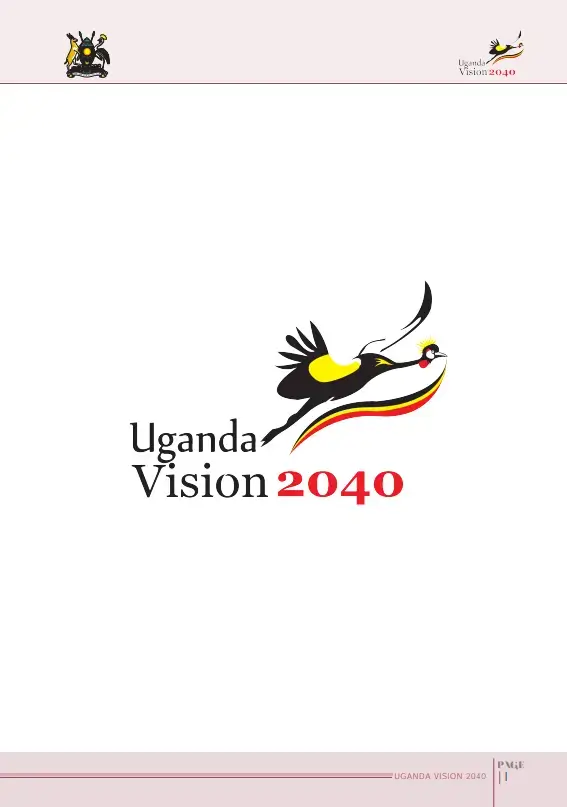Uganda Vision 2040, Over the last 50 years, Uganda has made significant development progress. Since the mid 1980’s, the economy has moved from recovery to growth. A number of economic policies and programs such as the Structural Adjustment Programs (SAPs), Economic Recovery Program (ERP), Poverty Eradication Action Plan (PEAP) have been successfully implemented leading to a boost in economic growth. Since 2002, the economy grew consistently at an average of 6.4 percent and has since built sufficient momentum for takeoff. In order to consolidate and accelerate this growth process, Government in 2007 approved the Comprehensive National Development Planning Framework policy (CNDPF) which provides for the development of a 30 year Vision to be implemented through: three 10-year plans; six 5-year National Development Plans (NDPs); Sector Investment Plans (SIPs); Local Government Development Plans (LGDPs), Annual work plans and Budgets. Consequently, Cabinet approved the National Vision Statement, “A Transformed Ugandan
Society from a Peasant to a Modern
and Prosperous Country within 30
years”. The National Planning Authority in consultation with other government institutions and other stakeholders has thus developed a Uganda Vision 2040
to operationalize this Vision statement. Vision 2040 builds on the progress that has been made in addressing
the strategic bottlenecks that have constrained Uganda’s socio-economic development since her independence, including; ideological disorientation, weak private sector, underdeveloped human resources, inadequate infrastructure, small market, lack of industrialization, underdeveloped services sector, underdevelopment of agriculture, and poor democracy, among others.

★★★★★
1.7k views1.5k likes👍 Like
★★★★★★
